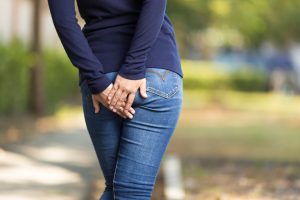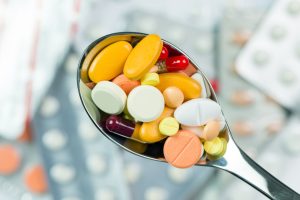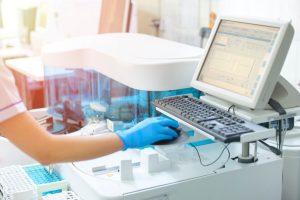A Nutritious Celiac Diet
Hello Everyone! I was reading a nutritional assessment recently about women with celiac disease. It revealed that their daily micronutrients were unmet.
The study in Norway (Norkost 3) showed that women with celiac disease had an unbalanced diet with a higher intake of total and saturated fat, along with a low fiber intake, compared to the general population.
The results highlighted the need for people with celiac to follow a nutrition-dense diet free of all the triggers.*
This post is for you if you have celiac disease and need guidance in not just what to eat to ensure that you get the proper nutrition but to guarantee that taste, variety, and cakes are involved!
What Are the Symptoms of Celiac Disease?
What Is the Best Diet for Celiac Disease?
How To Eat Healthily With Celiac Disease
What Happens if You Eat a High-Fat Diet?
What Happens if You Don’t Eat Enough Fiber?
Where Do You Find Celiac Nutrition Online?

What Are the Symptoms of Celiac Disease?
Celiac disease is an autoimmune disease, and symptoms can be surprising and may include:
- Diarrhea
- Constipation
- Bloating
- Stomach cramps
- Vomiting
- Anemia
- Nutrient deficiencies
- Extreme fatigue
- Headaches
- Dizziness
- Skin rashes
- Hair loss
- Damage to teeth enamel
- Mouth ulcers
- Joint pain
- Low bone density
- Sensory symptoms
- Cognitive dysfunction
- ADHD (attention-deficit hyperactivity disorder)
- Low moods, anxiety, and depression
- Weight loss
The only way to manage celiac disease is through diet and lifestyle, and if done successfully, you can live a symptom-free, rich life.

What Is the Best Diet for Celiac Disease?
If you are newly diagnosed, you may feel relieved that you finally know what has been causing all of your health challenges.
You may have searched for the best diet for celiac disease online and resolved that you won’t be eating out anymore and will be taking food with you wherever you go.
You may have listed everything you can eat but then be flummoxed at putting a varied meal plan together to fit into your life or the family.
The best diet recommendations for celiac disease can often feel restrictive, unsustainable, and boring. Mourning all the food you love, like cake, bread, and cookies, is expected when you have been diagnosed with celiac disease.

You may not know what to avoid since many safe foods for people with celiac disease can be made, processed, and grown alongside foods that cause celiac flare-ups.
*Some surprising ingredients in gluten-free foods will not help your celiac condition.
You could replace your current favorites with ‘gluten-free’ foods but be gaining weight and not feeling optimum health. You may not realize that other ingredients in some gluten-free packaged foods may cause gut dysbiosis.
Gut dysbiosis will exacerbate your symptoms! It causes chronic inflammation, dysregulates your immune system, and makes you vulnerable to more disease.
It can be mind-blowing, I know.

How To Eat Healthily With Celiac Disease
With celiac disease, the lining of your small intestines is damaged, and your immune system has mistakenly attacked your healthy tissues when you have eaten gluten (the substances inside are seen as threats to the body!). This causes your body to be unable to take in nutrients.
I know that when you have to watch what you eat and drink due to the need to eliminate celiac flare-ups, you can often go with tried and trusted ‘safe’ options and limit your food variety. Getting through the day without cramps or sickness is easier than anticipating an attack!

What happens to many people who have gastrointestinal symptoms with their autoimmune disease or chronic condition is malnutrition and dehydration.
These then present more issues that can develop. Anemia, as one example, then presents itself with more symptoms. Have you read Anemia, B12, & Iron Deficiencies?
Poor nutrition absorption can weaken your immune system. You may be interested in reading more about your immune system here.
What Happens if You Eat a High-Fat Diet?
The Norkast 3 study revealed women with celiac disease have high-fat intakes.
A high fat intake puts the risk of diseases of the heart at a higher rate. It can increase the risk of obesity, metabolic syndrome, fatty liver, type 2 diabetes, and certain types of cancer.
One of the problems is that processed gluten-free foods do not help you when you have celiac disease. They could be making your health worse in the long run.

You see, gluten-free processed food usually has a lot of saturated fat and chemicals to make them palatable. (Have you listened to my podcasts and Instagram Lives about additives and the microbiome with Dr. Dawn Shirling yet?).
There’s also a Masterclass Lives on Additives, that you can listen to/watch here.
High-fat diets change long-chain fatty acid metabolism and gut dysbiosis, which results in high levels of inflammatory triggers.
A high-fat diet and chemicals can alter the bugs in your tummy (microbiota) and decrease, in particular, certain ‘good’ bacteria and increase ‘bad’ bacteria.
As I often mention, bacteria are essential in gut, brain, and immune health.
Gut dysbiosis leads to chronic inflammation, which leads to immune dysregulation.

Oftentimes, with an alteration in the tummy microbiota comes depression, anxiety, low moods, and feeling like you want to cry, for instance. This is the brain-gut connection. Have you read How Do You Live with IBS and Anxiety?
Many people with chronic inflammation suffer low moods and depression, not just because of the challenges of having the conditions and how they present themselves.
What Happens if You Don’t Eat Enough Fiber?
The women in the study with celiac disease also had low fiber intakes.
Fiber is essential in our diets for digestion, gut health, and reducing the risk of developing chronic inflammatory conditions.
Your cardiovascular system is more protected with a fiber-rich diet because fiber reduces total cholesterol and low-density lipoprotein (LDL) cholesterol. LDL is a significant risk for heart conditions. Fiber also slows down carbohydrate sugar absorption, preventing blood sugar spikes after meals.

It is essential to get the balance right because low fiber intake changes tummy bacteria diversity and feeling fuller for longer, too.
Too little can cause bowel issues like IBS and even bowel cancer.
You can miss out on many nutrients if your diet is strict or limited for whatever reason (not the correct type of fiber and fats), but I will save that for another time.
As I mentioned earlier, many deficiencies occur due to conditions that trigger many trips to the bathroom. I have been there! You can feel really ill and low because of the lack of nutrients (as well as dealing with all of the complications and challenges).

Nutrition cannot be compromised. For many autoimmune diseases, mineral deficiencies, for instance, are not compensated for.
It is crucial to have a nutrient-rich diet for celiac disease while reducing inflammation, healing the condition, and protecting from developing other conditions and symptoms.
I have two autoimmune conditions in remission, and I feel amazing!
You may be interested in listening to how I put my autoimmune diseases into remission here or reading about how our bodies are wired for healing here.
Where Do You Find Celiac Nutrition Online?
Needless to say, Eat Burn Sleep’s nutrient-packed celiac-friendly diet and lifestyle may have you feeling the same way in very little time. Plus, it just gets better, and it isn’t temporary.

You don’t have to overthink too much because I have done all the meal planning, family and friends-friendly recipes, lunch boxes, and eating-out guide for you. When I was devising it, I decided that it had to be delicious and include tons of treats. I didn’t want to miss cakes and cookies! I don’t ‘do’ bland in life!
You don’t need to be good at cooking to prepare delicious nutrient-dense celiac-friendly meals. There are dozens of cake and cookie recipes (which have a reputation for being divine by cake-eating experts!), and you will know what to eat when you dine out (the eating-out guide is on the app!).
You can still eat your old favorites in moderation (but you may not want to because of the pain they used to cause and because gut microbiota is very clever!).
One important thing to note is I advise you to think about all of the beautiful new food and ways to live that are before you if you have been diagnosed with celiac, rather than feeling like you have to give up things you love. Adopting the Eat Burn Sleep gut health diet and lifestyle will reinforce the incredible way you will feel in no time.
Changing what you eat and how you eat will aid your gut healing, digestion, nutrient absorption, brain, energy, and sleep patterns. Moving and thinking in an anti-inflammatory, stress-free way will support them further.
Eat Burn Sleep allows you to be spontaneous again!
Life is to be lived well, after all!
I hope you have a wonderful day.






















